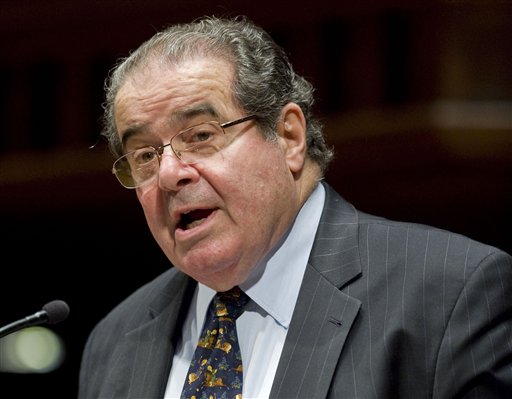
As I explained after the Obamacare decision came down, it is one of the most unfortunate decisions ever handed down by our highest court. This tragedy is only compounded by the fact that the main dissent in the decision was spectacular.
One of the greatest aspects of the dissent was its ringing affirmation of the doctrine of enumerated powers–the cornerstone of our constitutional system, that a central protection of our liberties is that the federal government only has those specific powers granted it by the Constitution.
The second part of this series teaches that cardinal feature of the Supreme Law of the Land by quoting these passages from the justices who joined together in dissent discussing the Commerce Clause of the Constitution, coupled with the Necessary and Proper Clause, both invoked by President Obama as together authorizing Obamacare’s infamous individual mandate. From Justices Antonin Scalia, Anthony Kennedy, Clarence Thomas, and Samuel Alito, in NFIB v. Sebelius:
… we now have sizable federal Departments devoted to subjects not mentioned among Congress’ enumerated powers, and only marginally related to commerce: the Department of Education, the Department of Health and Human Services, the Department of Housing and Urban Development. The principal practical obstacle that prevents Congress from using the tax-and-spend power to assume all the general-welfare responsibilities traditionally exercised by the States is the sheer impossibility of managing a Federal Government large enough to administer such a system.
These parts of the Act are central to its design and operation, and all the Act’s other provisions would not have been enacted without them. In our view it must follow that the entire statute is inoperative.
We do not doubt that the buying and selling of health insurance contracts is commerce generally subject to federal regulation. But when Congress provides that (nearly) all citizens must buy an insurance contract, it … directs the creation of commerce.
… The insurance premiums for those in this group [of younger, healthy people] will not reflect their own low actuarial risks but will subsidize insurance for others in the pool. Many of them may decide that purchasing health insurance is not an economically sound decision–especially since the guaranteed issue provision will enable them to purchase it at the same cost in later years and even if they have developed a pre-existing condition. But without the contribution of above-risk premiums from the young and healthy, the community-rating provision [forbidding insurers from using health factors when determining insurance premiums] will not enable insurers to take on high-risk individuals without a massive increase in premiums…
The Government presents the Individual Mandate as a unique feature of a complicated regulatory scheme governing many parties with countervailing incentives that must be carefully balanced. Congress has imposed an extensive set of regulations on the health insurance industry, and compliance with those regulations will likely cost the industry a great deal. If the industry does not respond by increasing premiums, it is not likely to survive. And if the industry does increase premiums, then there is a serious risk that its products–insurance plans–will become economically undesirable for many and prohibitively expensive for the rest…
If Congress can reach out and command even those furthest removed from an interstate market to participate in the market, then the Commerce Clause becomes a font of unlimited power, or in Hamilton’s words, “the hideous monster whose devouring jaws . . . spare neither sex nor age, nor high nor low, nor sacred nor profane.”
… [Referencing major Supreme Court precedents,] the last two of these cases show that the scope of the Necessary and Proper Clause is exceeded not only when the congressional action directly violates the sovereignty of the States but also when it violates the background principle of enumerated (and hence limited) federal power.
… The mandating of economic activity does [cross a line never before crossed], and since it is a field so limitless that it converts the Commerce Clause into a general authority to direct the economy, that mandating is not “consistent with the letter and spirit of the constitution.”
The Government was invited, at oral argument, to suggest what federal controls over private conduct (other than those explicitly prohibited by the Bill of Rights or other constitutional controls) could not be justified as necessary and proper for the carrying out of a general regulatory scheme. It was unable to name any. As we said at the outset, whereas the precise scope of the Commerce Clause and the Necessary and Proper Clause is uncertain, the proposition that the Federal Government cannot do everything is a fundamental precept….
… the decision to forgo participation in an interstate market is not itself commercial activity (or indeed any activity at all) within Congress’ power to regulate. It is true that, at the end of the day, it is inevitable that each American will affect commerce and become a part of it, even if not by choice. But if every person comes within the Commerce Clause power of Congress to regulate by the simple reason that he will one day engage in commerce, the idea of a limited Government power is at an end.
Breitbart News legal contributor Ken Klukowski is on faculty at Liberty University School of Law and filed briefs for Members of Congress and the Family Research Council in the Obamacare litigation.

COMMENTS
Please let us know if you're having issues with commenting.